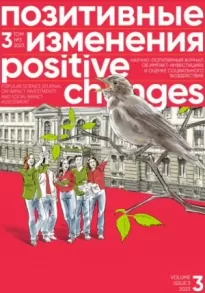Позитивные изменения. Том 3, № 3 (2023). Positive changes. Volume 3, Issue 3 (2023)

- Автор: Редакция журнала «Позитивные изменения»
- Жанр: Научная литература / Газеты и журналы
- Дата выхода: 2023
Читать книгу "Позитивные изменения. Том 3, № 3 (2023). Positive changes. Volume 3, Issue 3 (2023)"
MODEL 4: “REGIONAL PARTNERSHIP”
The “Regional Partnership” model is a practice that centers on fostering social innovation within universities through effective collaboration between academic institutions and various stakeholders in a specific region.
In this model, universities take on the role of hubs initiating and facilitating projects designed to address social issues within their respective regions. They set up partnerships with governmental agencies, local businesses, non-governmental organizations, community groups, as well as other educational and research institutions.
Compared to the “National Network for Social Innovation Development” model, which emphasizes collaboration between universities at the national scale to address overarching national challenges (such as fighting poverty or improving access to education), the “Regional Partnership” model is more localized, calling for cooperation between universities and other stakeholders at the regional level. In this model, universities collaborate with local organizations, government offices, entrepreneurs and communities to address local problems and generate social innovations at the regional level. This localized focus enables universities to work in alignment with the unique needs of their regions, making efficient use of resources and expertise to drive positive change at the local level. In summary, the distinction between the “National Network” and the “Regional Partnership” models lies in the scale and level of organization of collaboration between universities and their partners.
The LASIN (Latin American Social Innovation Network) project is an excellent example of a large-scale network partnership aimed at fostering social innovation within higher education institutions. Funded by the European Commission’s Erasmus+ capacity building program, LASIN focuses on addressing social challenges by establishing specialized units for supporting social innovation in eight universities across Latin America, including Chile, Colombia, Brazil, and Panama. Additionally, LASIN seeks to expand its network to involve other countries and institutions in the region. Each of these Social Innovation Support Units (SISUs) within LASIN has developed its unique model to drive social change within its local community. Despite their diversity, the SISUs share a common objective: to leverage available resources, knowledge, and expertise to serve their communities in innovative, effective, and sustainable ways.
Established within each LASIN partner university in Latin America, SISUs engage various stakeholders, including members of the academic community, students, staff, community organizations, action groups (such as indigenous communities), local government authorities, small businesses, and others.
As an example of a regional SISUs, the Unidade de Suporte à Inovação Social (USIS)[151] operates within the Federal University of Rio de Janeiro, the largest federal university in Brazil with approximately 54,000 students (Göransson, B., 2017). USIS is officially registered as a development project aimed at building connections between community groups, social movements, non-governmental organizations (NGOs), and government agencies to identify and support social innovations. Its primary focus is to strengthen the relationship between the university and the broader community by facilitating mutual learning between university members and social innovators. This learning process involves a range of activities, including harnessing the diverse competencies of social innovators and other participants, fostering design thinking, service design, product design, marketing, innovation management, video creation, and the utilization of virtual reality. The project promotes collaborative efforts by sharing materials and tools, conducting workshops, seminars, and mentoring programs (Cruz, P. R., Rebourseau, V. & Luisi, A., 2018).





